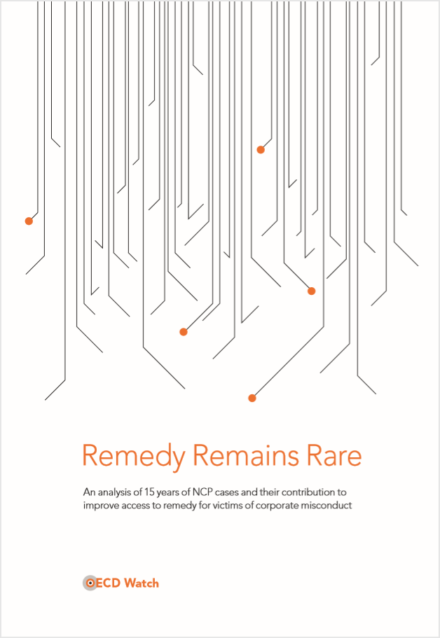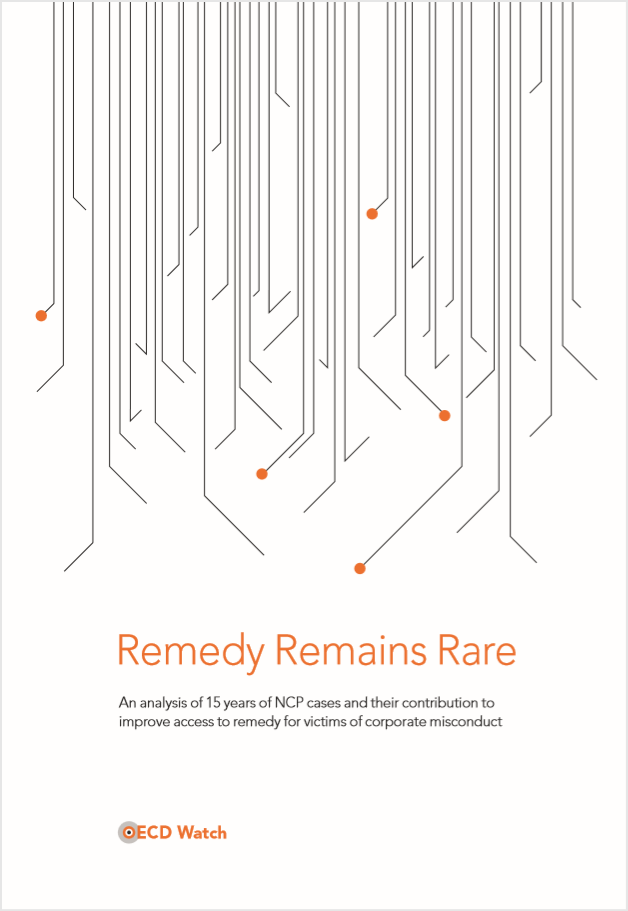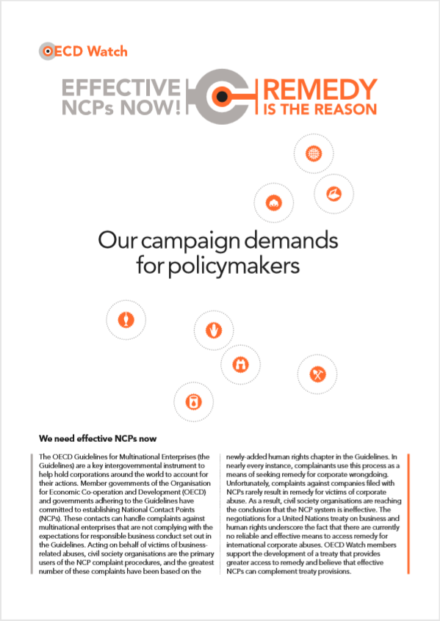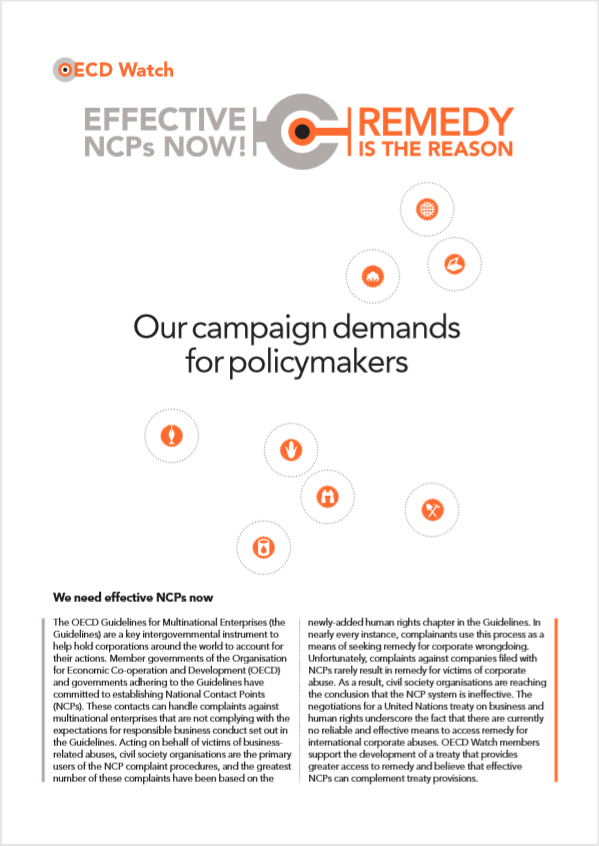OECD Watch is engaged in a campaign to improve the effectiveness of National Contact Points (NCPs) of the OECD so that the NCP system can provide access to remedy for victims of business-related human right violations. All governments that adhere to the OECD Guidelines for Multinational Enterprises (OECD Guidelines) have made a binding commitment to establish effective NCPs. We ask these governments to honour their commitments.

The OECD Guidelines are a key instrument to promote responsible business conduct of companies and contain a state-based non-judicial grievance mechanism to help resolve disputes with companies that are not complying with the Guidelines, while facilitating access to remedy for victims of corporate abuse.
- What is the problem?
NCPs have the potential to be the state-based non-judicial grievance mechanism called for in the UN Guiding Principles in Business and Human Rights. But complaints against companies on business-related abuses filed with NCPs rarely result in remedy for victims. In order for the OECD Guidelines to remain a relevant tool for governing today’s global economy and ensuring that the NCP system is credible, immediate action is needed by adhering countries to strengthen the effectiveness of their NCPs.
- Governments, honour your commitments!
Although governments are free to set up NCPs in different ways, four criteria must be met with the objective of ensuring functional equivalence: visibility, accessibility, transparency and accountability. Also NCPs must respect four principles when handling complaints: impartiality, predictability, equitability and compatibility with the Guidelines. We ask governments to honour these commitments in the Guidelines.
- The campaign The Remedy is the Reason campaign aims at getting policy-makers to take the necessary steps to ensure their NCPs meet the obligations laid out in the OECD Guidelines. The campaign also aims at getting policy-makers to acknowledge that remedy is the reason for NCPs, so that NCPs have the political support to issue determinations of a company’s non-compliance with the Guidelines and help facilitate access to remedy.





